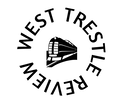Ethnography of a Woman Broken into Parts
Exhibit A: An oversized wool hat enters the grocery store
with a woman underneath it.
Observe her buying a melon.
Observe her surveying the sharpness of block cheddar cheese.
The woman smiles pertly at toddlers, pretending
to be charmed by their legs swinging from the front baskets of grocery carts,
dirty fingers fishing
through cereal boxes.
The woman has brought no list.
It’s just her after all, and her arms are capacious.
Seized suddenly by a desire beyond her vocabulary
the woman chooses prosciutto,
chooses dried apricots,
chooses a jar of pitted Greek olives, which
she balances in her arms
as she chooses dried porcini
then drops the jar of olives on the floor,
cracking open louder than a firearm,
spreading its dark Rorschach across the concrete.
Is it a jellyfish?
No, a plane in free fall.
A butterfly pinned at the wings.
Exhibit B: Two teenage boys with mops arriving
to clean the broken glass and spilled fluid
and any evidence of her.
Observe the way these boys need haircuts.
Observe the woman apologize for the brutality of her presence here,
her crime against grace,
and offer to pay for the olives,
which they accept with indifference.
Observe the way this, and not the breaking of the glass,
or the cleaning of the liquid,
or even the boys themselves and their fragile pubescent striving,
is what makes the woman start to cry.
All that she is — knit woolen hat,
armload of impulse, guarded apology --
she would broker for five minutes back of her life
to choose a grocery cart
and care not at all about the tiny sticky boy who’d sat inside it
before she touched the handle.
Or maybe, observe:
a stranger who hears the commotion
rushing over to help,
smiling gently before saying out loud,
One of those days?
then offering one of the olives from the broken jar.
Look. It’s still good.
with a woman underneath it.
Observe her buying a melon.
Observe her surveying the sharpness of block cheddar cheese.
The woman smiles pertly at toddlers, pretending
to be charmed by their legs swinging from the front baskets of grocery carts,
dirty fingers fishing
through cereal boxes.
The woman has brought no list.
It’s just her after all, and her arms are capacious.
Seized suddenly by a desire beyond her vocabulary
the woman chooses prosciutto,
chooses dried apricots,
chooses a jar of pitted Greek olives, which
she balances in her arms
as she chooses dried porcini
then drops the jar of olives on the floor,
cracking open louder than a firearm,
spreading its dark Rorschach across the concrete.
Is it a jellyfish?
No, a plane in free fall.
A butterfly pinned at the wings.
Exhibit B: Two teenage boys with mops arriving
to clean the broken glass and spilled fluid
and any evidence of her.
Observe the way these boys need haircuts.
Observe the woman apologize for the brutality of her presence here,
her crime against grace,
and offer to pay for the olives,
which they accept with indifference.
Observe the way this, and not the breaking of the glass,
or the cleaning of the liquid,
or even the boys themselves and their fragile pubescent striving,
is what makes the woman start to cry.
All that she is — knit woolen hat,
armload of impulse, guarded apology --
she would broker for five minutes back of her life
to choose a grocery cart
and care not at all about the tiny sticky boy who’d sat inside it
before she touched the handle.
Or maybe, observe:
a stranger who hears the commotion
rushing over to help,
smiling gently before saying out loud,
One of those days?
then offering one of the olives from the broken jar.
Look. It’s still good.
November / December 2022
Christy Prahl is the author of the collection We Are Reckless, forthcoming from Cornerstone Press September 2023. A Best of the Net and two-time Pushcart Prize nominee, her publications include the Eastern Iowa Review, Penn Review, Peatsmoke Journal, Passengers, Blue Mountain Review, and others. She has held residencies at both Ragdale and the Writers' Colony at Dairy Hollow and is the founder of the PenRF reading series. She splits her time between Chicago and rural Michigan and appreciates subways and siloes in equal measure.
Art: Mercado Chichicastenango. Oil on canvas. T. Aguilera.
Powered by Women

